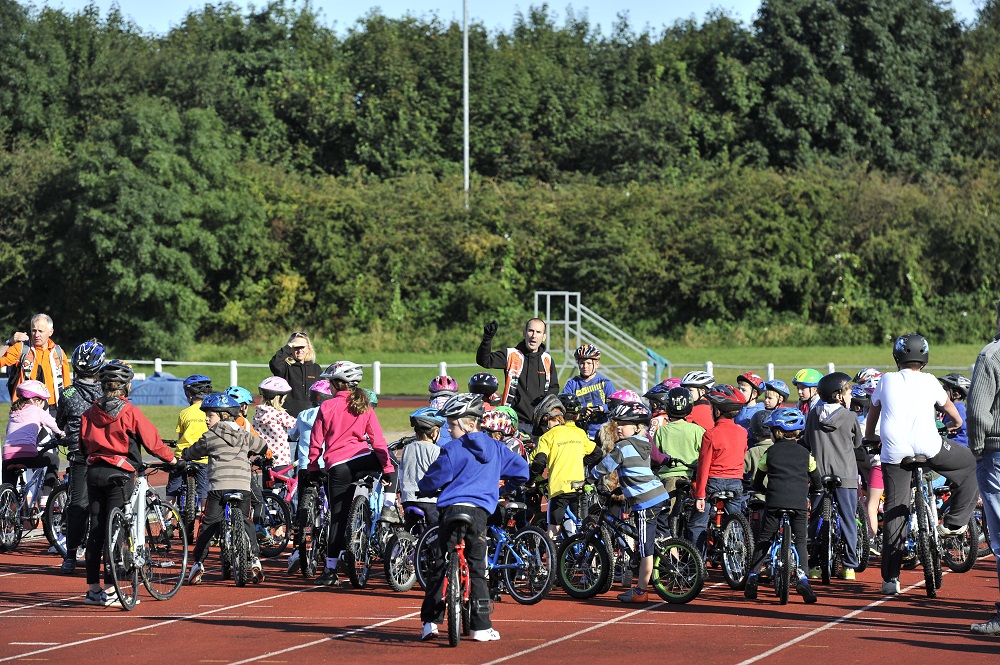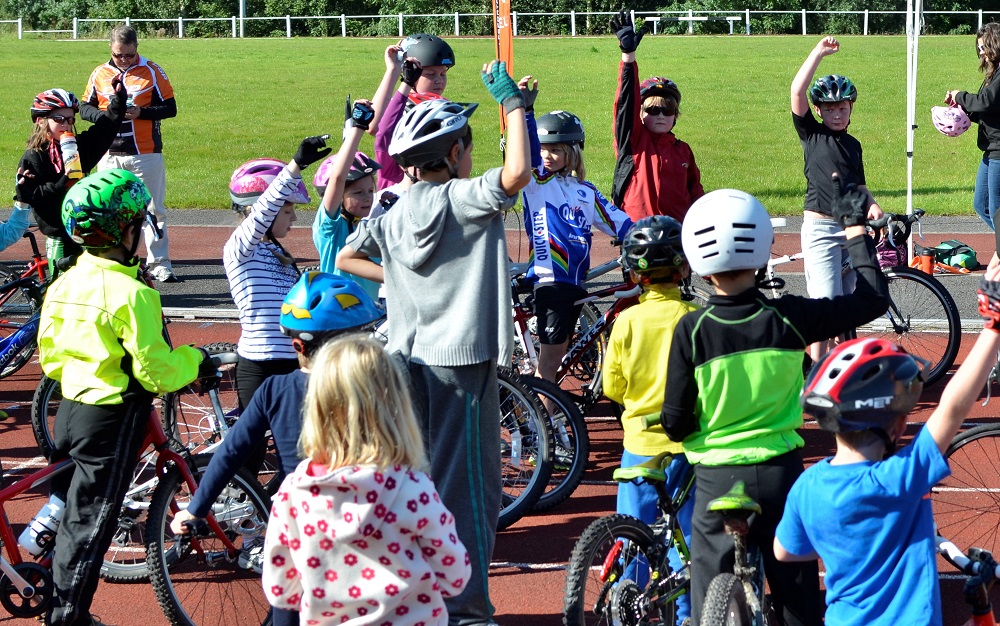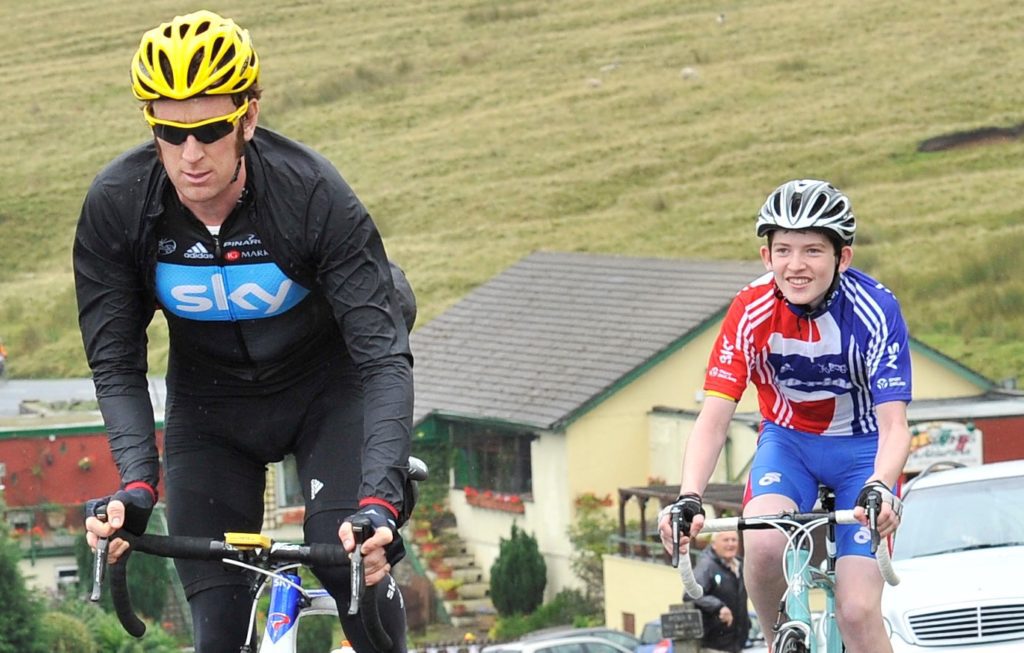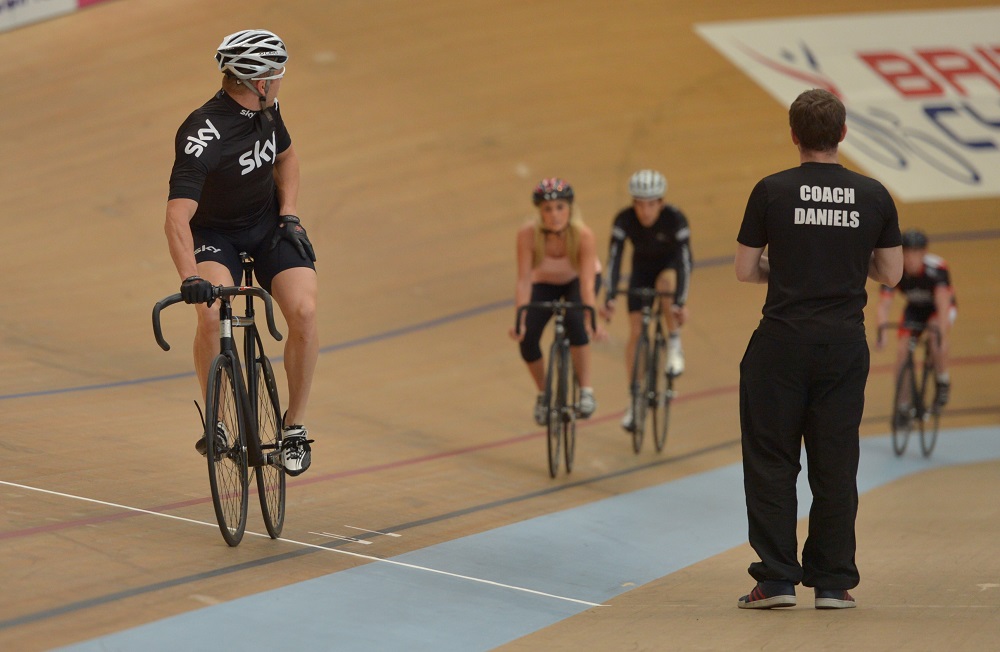Recently, we’ve been thinking a lot about how we can encourage more young people to get into cycling. And no one is doing a better job at that than the cycling coaches who are working and volunteering for cycling clubs throughout the UK.
We spoke to Paul Edwards, a cycling coach from Lancaster-based club Salt Ayre Cog Set. Paul is passionate about mental health and wellbeing. He was instrumental in setting up the Cog Set Papyrus Racing Club, which aims to promote the Papyrus charity. Its goal is to prevent teenage suicide. The club provides an extension to the Cog Set Go-Ride club so that riders still have a sense of belonging after they turn 16.
We spoke to Paul about how he got into coaching, the best age for kids to get into cycling, and how parents can keep their kids motivated.

How did you first get into coaching?
My children were both attending Cog Set and I was asked if I was interested in getting involved. As my eldest was enjoying racing, it seemed that I was likely to be attending the club for some time, so opted to do my level 2 coaching.
In your opinion, what age is best for kids to start taking cycling seriously?
‘Seriously’… interesting word. Fundamentally I believe all physical activity has to be fun if it is to be a long-term love. I think ‘serious’ in cycling means additional training rather than just riding for fun. My instinct is that cycling might get serious around 13 or 14.
The reality is that there are kids racing from six years old who want all the gear there and then. There is a bit of an ‘arms race’ towards the really high-quality bikes even at an early age. It isn’t unusual to see 10-year-olds on carbon bikes. This is a serious investment and sometimes that level of parental buy-in can lead to parents thinking a local ‘Under 10s’ race is the Tour de France.
To relieve the pressure that can be piled on kids, parents have to learn how to see that as an investment in their child’s happiness and well-being rather than a kick-start on their sporting career.

What are some of the most effective motivators that help young cyclists stay engaged?
Having fun. Having mates to ride with. Finding a type of riding that suits them, be it racing, journeying, Strava, or just commuting to school.
I think for some older teens, the environmental aspect of cycling versus driving is also meaningful. Fundamentally, though, as long as they have fun, they will stay engaged.
What’s a common issue that you see young riders face? How do they overcome it?
Common issues for cyclists tend to be around whether they are riding in a way that they want to, or if they feel they’re being pushed too much by parents, coaches or others. For female cyclists in their teens, body image can become an issue because physical strength is not always seen as an ideal attribute among non-sporty peers. Male cyclists, on the other hand, can get downhearted about not being as competitive as their peers.
Overcoming it I think is about helping riders to set goals for themselves that are meaningful — they should be challenging but feasible. I think maintaining an open dialogue in teenage years is critical too. Often by mid-teens, cycling is a big part of their lives and if things don’t meet their expectations, they can feel very vulnerable.
Training too much and training when injured is another common issue. It stems from a lack of understanding around physiology. It is about trying to play the long game with cycling and not making the next event or race the be-all. If you ask most cyclists if they would rather reach their peak as an under 16 or in the Tour de France at 28, you only get one answer.
We try to encourage riders to do the right things to give themselves a sense of control. We provide them with information about healthy lifestyles, priorities (eg exams), talking, picking three or four races a year that are priorities and treat the rest as training. And finally that all events are opportunities to learn.

What would your advice be for parents who want to support their kids in competitive cycling?
- Leave the coaching to the coaches — At races, you often hear ‘get across the gap’… as if their child is somehow not trying to do that already. Recognise the expertise of the coaches. All kids need from their parents is love and encouragement.
- Don’t critically reflect on performance straight after an event — Kids live in the now and they often feel exhausted, emotional and frustrated after a race. Having dad tell them what went wrong doesn’t help.
- Kids racing is just fun, it is not the be-all — There is only one winner and lots of losing. Make the losing fun by being proud of the effort that went into it. Don’t focus on results — kids are pretty self-analytical and will be well aware of what they need to work on for next time.
- Things rarely go to plan — Cycling really breeds resilience if it has good parental support. Be prepared for things to not go the way you expect and find a way to support your child regardless.
- Give it time — Try not to panic when your future Froomy or Laura Trott doesn’t seem to be going well. Remember they are developing physically all the time and some kids develop quicker than others. This is really noticeable in under-fourteens. Puberty is exhausting and the body doesn’t prioritise the sprint finish!
- Provide structure — Kids need structure. Help them to juggle time for homework, mates, cycling and sleeping. The big picture though is happy, healthy, supported young people. If they seem to be losing motivation, give them time off the bike. Go do other stuff. Don’t force them to specialise too soon.
You can learn more about the club on Salt Ayre Cog Set’s British Cycling profile.

About Paul
Paul is 49 and runs a training company that supports the public sector. He’s married and has two boys — 14 and 11 years old — and his eldest is a very competitive cyclist on the road.
Paul has been a BC coach for 2 years. He rides a 6-year-old BMC Team Machine 10-speed Ultegra. Most of his money is spent taking his children to bike races or on their bikes!
